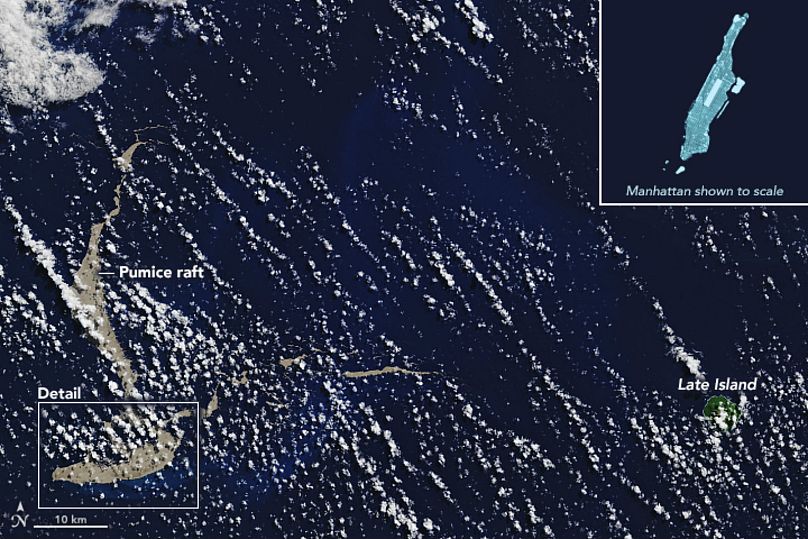A giant sheet of floating pumice rock is drifting towards Australia, carrying along with it new marine life that scientists say could help repair the Great Barrier Reef’s corals.
If someone asked you what was a common by-product of a volcano, you might say smoke or lava.
Pumice rock is unlikely to feature high on your list.
But that is what is produced if the volcano explodes underwater, as an Australian couple found out in the Pacific Ocean recently.
Michael Hoult and Larissa Brill sailed through a sheet of floating pumice rock the size of Manhattan, which is drifting towards Australia.
Scientists said the pumice emerged after an underwater volcano that erupted off Tonga earlier this month.
Experts say it could help repair the Great Barrier Reef’s corals, which have been damaged by rising sea temperatures.
Michael and Larissa detailed their experience on Facebook: "We entered a total rock rubble slick made up of pumice stones from marble to basketball size.
"The waves were knocked back to almost calm and the boat was slowed to 1 knot. The rubble slick went as far as we could see in the moonlight and with our spotlight."
Sailor Shannon Lenz also posted footage on YouTube.
"We sailed through a pumice field for 6–8 hours, much of the time there was no visible water," Lenz wrote. "It was like ploughing through a field. We figured the pumice was at least six inches thick."
According to Scott Bryan, associate professor at the Queensland University of Technology, the travelling pumice may help the Australian Great Barrier Reef heal.
"The pumice has started becoming a home for a whole range of micro-organisms, plants and animals," Bryan told Euronews.
You can watch more by clicking in the video player, above.












